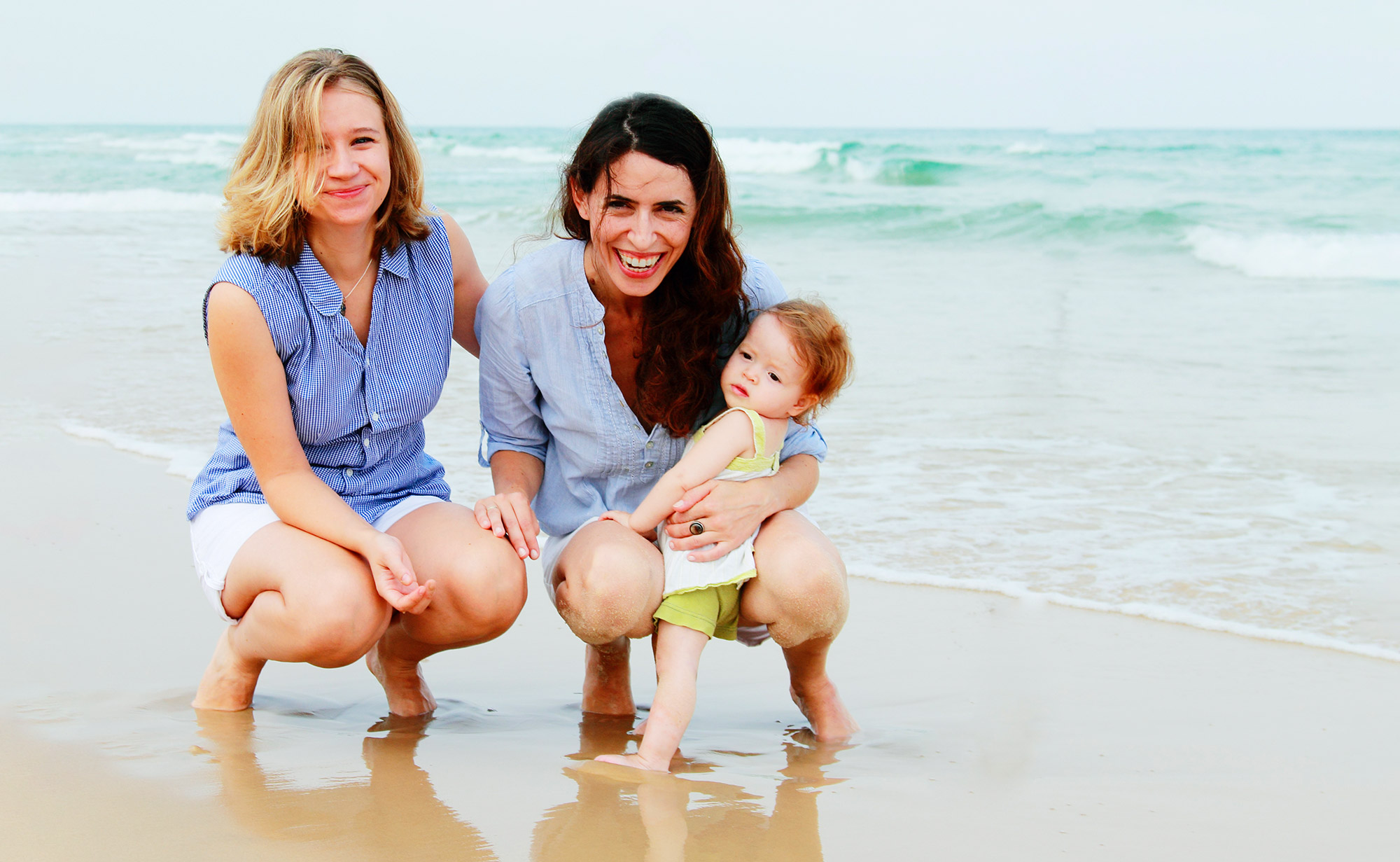
When a couple makes this important decision and chooses to visit one of our specialists, the first step is to request a diagnostic appointment. In this initial meeting, the medical specialist acquires information, makes an analysis, and evaluates the couple's medical history. Subsequently, the physician specifies the tests and studies that are required to determine the parties’ fertility level.
There are fertility tests for both men and women. Once the results are available, the couple can be given more information about the treatment or procedure they may undergo with the highest likelihood of having a successful pregnancy.
When a couple makes this important decision and chooses to visit one of our specialists, the first step is to request a diagnostic appointment. In this initial meeting, the medical specialist acquires information, makes an analysis, and evaluates the couple's medical history. Subsequently, the physician specifies the tests and studies that are required to determine the parties’ fertility level.
There are fertility tests for both men and women. Once the results are available, the couple can be given more information about the treatment or procedure they may undergo with the highest likelihood of having a successful pregnancy.
Fertility Treatments for Same-Sex Couples
Once the tests requested by the specialist have been completed, we will work with the couple to determine the appropriate treatment and achieve their dream of forming a family. Potential treatments for same-sex couples include:
-
In vitro fertilization (IVF)/ROPA method
-
Sperm donation
-
Artificial insemination
-
Egg donation

Fertility Treatments for Same-Sex Couples
Once the tests requested by the specialist have been completed, we will work with the couple to determine the appropriate treatment and achieve their dream of forming a family. Potential treatments for same-sex couples include:
- In vitro fertilization (IVF)/ROPA method
- Sperm donation
- Artificial insemination
- Egg donation
It is key to the process that you, as a family, discuss your life plans in advance, so that you can fulfill your dream more easily. These are some questions about family planning that you might want to discuss as a couple:
-
Is it important to have a family member as a sperm and/or egg donor?
-
Would you rather have an anonymous donor?
-
Does one of the parties want to provide the egg, while the other carries the baby in her womb?
Taking time to talk about these issues before the appointment will help you determine what matters most to you.
After choosing the treatment that best fits your goals, it is important to constantly keep in touch with IECH’s advisors and physicians. To carry out the treatment successfully, some additional tests and medications will be required, depending on the choice you make.
It is key to the process that you, as a family, discuss your life plans in advance, so that you can fulfill your dream more easily. These are some questions about family planning that you might want to discuss as a couple:
- Is it important to have a family member as a sperm and/or egg donor?
- Would you rather have an anonymous donor?
- Does one of the parties want to provide the egg, while the other carries the baby in her womb?
Taking time to talk about these issues before the appointment will help you determine what matters most to you.
After choosing the treatment that best fits your goals, it is important to constantly keep in touch with IECH’s advisors and physicians. To carry out the treatment successfully, some additional tests and medications will be required, depending on the choice you make.
Our
treatments

Our
treatments
Reception of Oocytes from the Partner (ROPA Method)
There are different ways in which female same-sex couples can become parents, but the advantage of the ROPA method is that it offers both women the possibility of being biological mothers. As its name implies, the main characteristic of this method is that both women partake in the in vitro fertilization treatment (IVF): one of them undergoes ovarian stimulation to provide the oocytes while her partner carries the baby and gives birth.
Oocytes are obtained through ovarian drilling and are fertilized with donor semen, as in any other IVF treatment. In this way, both women actively participate in the pregnancy process that will bring their child into the world, one as genetic mother and the other as gestational mother.
Sperm Donation
Donor selection is a completely anonymous procedure. At IECH we have a wide catalog of previously selected donors. During the selection process, high quality controls are established to avoid genetic, hormonal, psychological, and sexually transmitted diseases.
Intrauterine Insemination (IUI)
The sperm sample from a donor can also be used in intrauterine insemination. This procedure involves putting sperm directly into the uterus while the woman is ovulating, which helps the sperm get closer to the egg. This reduces the time and distance the sperm must travel and, as a result, fertilization is facilitated.
Before undergoing this procedure, the patient is likely to have to take fertility medication that stimulates ovulation. Pregnancy occurs when a sperm fertilizes an egg and the fertilized egg is implanted in the lining of the uterus.
Egg donation
At IECH we have a donor egg bank. For the convenience of everyone involved, the bank is handled in a completely anonymous way. Donors go through a previous screening process and undergo toxicological, infectious, genetic, hormonal, and oncological tests to rule out future problems with the baby.
If you are interested in learning more about the procedure, we recommend you schedule an appointment with one of our fertility specialists.
Reception of Oocytes from the Partner (ROPA Method)
Las parejas lesbianas tienen diversas opciones para ser madres, pero la ventaja de este método es que ofrece la posibilidad a ambas mujeres de ser madres biológicas del futuro bebé. Como su nombre lo indica, la principal característica de esta técnica es que el tratamiento de fertilización in vitro (FIV) se comparte entre ambas mujeres: una se somete a la estimulación ovárica para aportar los ovocitos y su pareja gesta el embarazo y da a luz al bebé.
Oocytes are obtained through ovarian drilling and are fertilized with donor semen, as in any other IVF treatment. In this way, both women actively participate in the pregnancy process that will bring their child into the world, one as genetic mother and the other as gestational mother.
Sperm Donation
Donor selection is a completely anonymous procedure. At IECH we have a wide catalog of previously selected donors. During the selection process, high quality controls are established to avoid genetic, hormonal, psychological, and sexually transmitted diseases.
Intrauterine Insemination (IUI)
The sperm sample from a donor can also be used in intrauterine insemination. This procedure involves putting sperm directly into the uterus while the woman is ovulating, which helps the sperm get closer to the egg. This reduces the time and distance the sperm must travel and, as a result, fertilization is facilitated.
Before undergoing this procedure, the patient is likely to have to take fertility medication that stimulates ovulation. Pregnancy occurs when a sperm fertilizes an egg and the fertilized egg is implanted in the lining of the uterus.
Egg donation
At IECH we have a donor egg bank. For the convenience of everyone involved, the bank is handled in a completely anonymous way. Donors go through a previous screening process and undergo toxicological, infectious, genetic, hormonal, and oncological tests to rule out future problems with the baby.
If you are interested in learning more about the procedure, we recommend you schedule an appointment with one of our fertility specialists.
Schedule an appointment
At IECH we are sure that your biggest dream can come true. If you want to know more about the treatments for LGBTQ couples that we offer at the center, fill out the form below and schedule an appointment.

